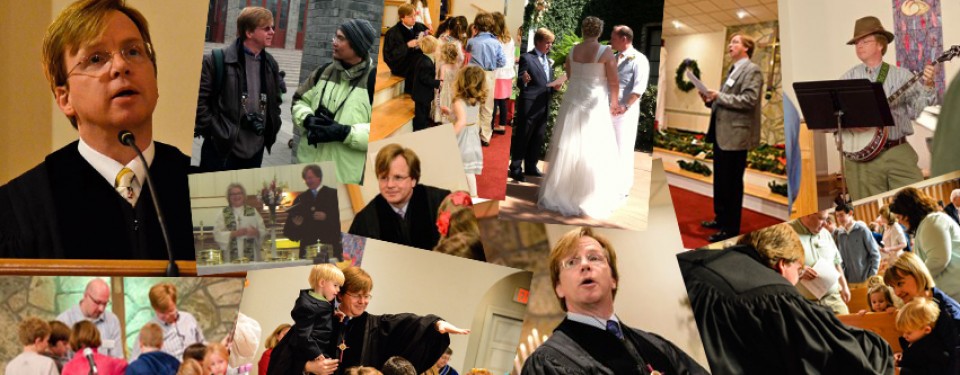 The following was a “Letter to the Editor” written by Heidi Mario, a member of Centre Congregational Church in Brattleboro, VT and published in the August 17th Issue of the Brattleboro Daily Reformer. I was so impressed with the letter that I asked Heidi for permission to republish it here in my blog, which she granted. The original article can be found here. – Allen
The following was a “Letter to the Editor” written by Heidi Mario, a member of Centre Congregational Church in Brattleboro, VT and published in the August 17th Issue of the Brattleboro Daily Reformer. I was so impressed with the letter that I asked Heidi for permission to republish it here in my blog, which she granted. The original article can be found here. – Allen
I am curious to know on what Dean Lynch bases his statement “More people have been killed over the history of religion than any other” (Letter Box, Aug. 8). While it is true that over the course of human history the worship of gods, or God, has been used as an excuse and justification for much evil, the vast majority of wars have been political, not religious. Most murders are committed for reasons of passion, anger, sex or drugs, and most of the horrific mass killings of recent years, such as Columbine, Aurora, Arizona and Newtown, were perpetrated by disturbed individuals with no axe of faith to grind.
To make a statement such as “Organized religion is a bad thing: a dogmatic system of conduct sold by clergy/true believers as the only path to the Divine,” is tarring progressive mainstream Protestants, Bible-thumping Southern Baptists, Evangelicals, Catholics, Buddhists, Islamic extremists, Islamic moderates, Hindus, ultra-Orthodox Jews, Reform and Conservative Jews, Taoists, Wiccans and a dizzingly vast array of other faith practices, all “organized” to one degree or another, with the same brush. That is as bigoted and ridiculous as declaring that all persons of a particular ethnic group or culture are inclined to violence, or are lazy, or stupid.
I wonder if Mr. Lynch is aware that if churches were taxed, as he proposes, all but the largest and wealthiest would most likely be forced to close their doors. Using my own church as an example, the free meal program that feeds hundreds each week in our building would shut down. The AA groups that meet several times a week would have to find somewhere else to go. The day care center, which serves many lower-income families, would close. The monthly non-sectarian Moment for Peace would be homeless. Community musical events, including the Messiah Sing, which raises money for the Brattleboro Area Drop In Center, would have to find another venue. The graceful, historic sanctuary, where countless weddings, baptisms and funerals have been held over the last two centuries would stand silent and empty. And the Baptist church across the street could no longer provide meals and shelter to the homeless.
And there are many elderly, disabled and just plain lonely, for whom their church family is their only family. To say that the government would use the increased tax revenue to “feed the hungry … help the sick … teach the children,” is laughably naive.
If Mr. Lynch chooses to tread his own spiritual path alone, that’s fine. More power to him. But others of us find our our faith journeys require, at least partly, the enrichment of a faith community. We find inspiration, joy, hope, courage and peace in the words of a sermon and in Scripture, in the guidance of a wise and compassionate pastor, the beauty of music and the love and support of sharing that journey with others.
Our pastor told us recently about a young woman from North Carolina who had come into the church, seeking help. A “friend” had convinced her to take an impromptu joy ride to Vermont, and then promptly abandoned her. She had no money. She knew no one here. She didn’t know her mother’s or father’s phone numbers, or street addresses. She was illiterate. But she saw a building that looked like a church, and knew that churches were supposed to help people. The pastor spent the rest of her day playing detective, eventually managing to contact her family and then getting her on a bus for home.
This was, sadly, not a particularly rare event. We frequently get requests from people in our community in desperate circumstances requesting help, who have never attended a service, never dropped a quarter in the collection plate, asking for gas money, to pay a utility bill, or for groceries. And we do what we can, because we are an organized religion, a church, and that is what churches are supposed to do.
I would like to invite Mr. Lynch to attend services at local churches, to see for himself if indeed, organized religion is such a bad thing as he has posited. Possibly he will feel himself justified. But then again, he may find his horizons broadened and meet some pretty nice people. As far as “what would Jesus, Mohammed, Buddha, whoever, do?” I do know that for most major religions, meeting together, and sharing faith, is an intrinsic, indeed, required, part of practice. As Jesus said, “For where two or three are gathered together in my name, there I am in the midst of them.”








